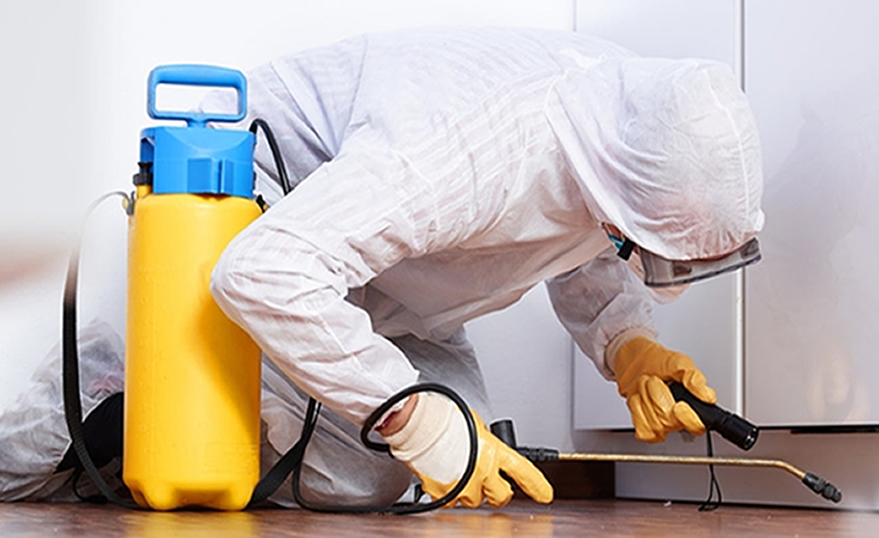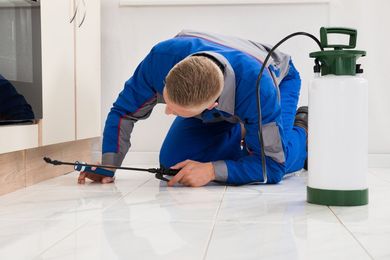Same-Day Pest Control in Port Charlotte
Comprehensive Overview to Understanding Pest Control Approaches and Their Treatment
Understanding parasite control techniques is necessary for reliable monitoring of undesirable microorganisms that posture dangers to wellness, farming, and home. This extensive overview will explore different approaches, consisting of chemical remedies, organic strategies, and mechanical approaches, all under the umbrella of Integrated Parasite Monitoring (IPM) As we take a look at these techniques, it becomes significantly clear that the selection of method can considerably affect both human interests and eco-friendly equilibrium. What elements should be considered when selecting the suitable insect control method for a particular situation? The response may result in even more sustainable practices than one might originally presume.
Introduction of Insect Control Techniques
Pest control techniques incorporate a selection of strategies created to manage and eliminate unwanted organisms that can damage human health, farming, and residential property. Reliable insect management is important for maintaining the honesty of ecosystems and making sure the safety and security of food supplies. These techniques can be extensively classified right into three main techniques: cultural, mechanical, and biological controls.

Cultural control involves changing farming techniques or ecological problems to reduce bug establishment and recreation. This approach consists of crop turning, sanitation, and picking pest-resistant plant selections. Mechanical control counts on physical barriers or devices to stop insect accessibility or straight remove them. Examples consist of catches, nets, and hand-picking unsafe insects.
Organic control utilizes natural killers, parasites, or virus to regulate pest populaces. This technique stresses environmental balance and can consist of presenting beneficial insects, such as ladybugs or predative nematodes, to handle parasite visibility.
Integrated pest monitoring (IPM) integrates these techniques, utilizing an alternative approach that emphasizes avoidance, surveillance, and liable monitoring. By using a mix of these approaches, pest control can be much more lasting and effective, lessening reliance on chemical treatments while safeguarding human wellness and the setting.

Chemical Pest Control Solutions
A variety of chemical bug control services are available, offering efficient options for taking care of pest populations when various other techniques may fall short. These solutions mainly include pesticides, herbicides, fungicides, and rodenticides, each created to target specific insects while reducing harm to non-target microorganisms.
Pesticides are especially effective versus a range of insects, including ants, cockroaches, and termites, and can be categorized as get in touch with or systemic agents. Call pesticides kill bugs on call, while systemic pesticides are soaked up by plants, making them poisonous to insects that prey on them. Herbicides are utilized to manage undesirable plant life, whereas fungicides are vital for managing fungal conditions that can harm plants and decorative plants.
In addition, incorporated insect management (IPM) concepts ought to be utilized, incorporating chemical options with cultural, mechanical, and organic strategies for lasting parasite control. This all natural method not only boosts pest administration effectiveness but additionally minimizes prospective environmental influences connected with chemical use.
Biological Insect Control Strategies
Biological pest control strategies provide an eco-friendly alternative to chemical approaches by using natural killers, parasites, or pathogens to handle pest populaces. This technique leverages the environmental connections in between organisms, advertising a balanced ecosystem while decreasing chemical deposit in the atmosphere.
Among the most usual organic control techniques entails the intro of natural opponents. Ladybugs are used to control read here aphid populaces, while parasitical wasps can target caterpillars and other bugs. These all-natural predators properly reduce pest numbers without harming helpful pests.
Additionally, microbial representatives such as microorganisms, fungi, and infections are used to infect and kill certain parasites. Bacillus thuringiensis (Bt), a naturally happening germs, is extensively utilized to control caterpillars and other larvae, showcasing the efficiency of microbial bug control.

Physical and Mechanical Approaches
Regularly used in incorporated parasite monitoring techniques, physical and mechanical techniques function as effective devices for controlling parasite populaces without the use of chemicals. These techniques rely upon physical you could try here obstacles, catches, and various other mechanical gadgets to stop or get rid of parasites, making them environmentally friendly options.
Physical approaches include making use of barriers such as insect netting, displays, or row covers that physically obstruct bugs from accessing plants. This is especially helpful in agricultural setups where crop defense is important. In addition, habitat control, such as getting rid of debris and standing water, can reduce bug reproducing sites, consequently reducing problems.
Mechanical methods incorporate traps, which can be designed to catch details bugs. Sticky traps and scent traps are usual examples that draw and retain pests, promoting monitoring and control. Vacuuming is one more mechanical approach, efficient for eliminating parasites from indoor atmospheres, specifically in situations of problems.
Preventative Insect Monitoring Techniques
Efficient preventative parasite management techniques are necessary for maintaining healthy environments and lessening pest-related concerns prior to they occur (Pest Control in Port Charlotte, FL). These techniques concentrate on positive procedures that minimize the chance of parasite infestations by addressing the origin

One more important approach includes proper landscape design practices (Pest Control in Port Charlotte, FL). Keeping vegetation cut and away from buildings can reduce harborage locations for pests. Implementing integrated parasite management (IPM) strategies that include keeping an eye on parasite populations and utilizing organic controls can promote a balanced environment that normally suppresses pest numbers.
Education and training for personnel and locals on identifying early indications of bug task are also essential components of an efficient preventative program. By promoting an environment of recognition and caution, companies and house owners can considerably enhance their insect administration initiatives and guard their areas against future invasions.
Final Thought
To conclude, efficient insect control requires a diverse technique that integrates chemical, organic, and mechanical approaches. Using an Integrated Parasite Management (IPM) structure allows for the great site sustainable administration of insects while lessening eco-friendly influence. Preventative methods additionally boost the efficacy of these methods, making sure long-lasting defense of health, agriculture, and property. Ultimately, a comprehensive understanding of these diverse parasite control strategies is essential for attaining effective results in insect management campaigns.